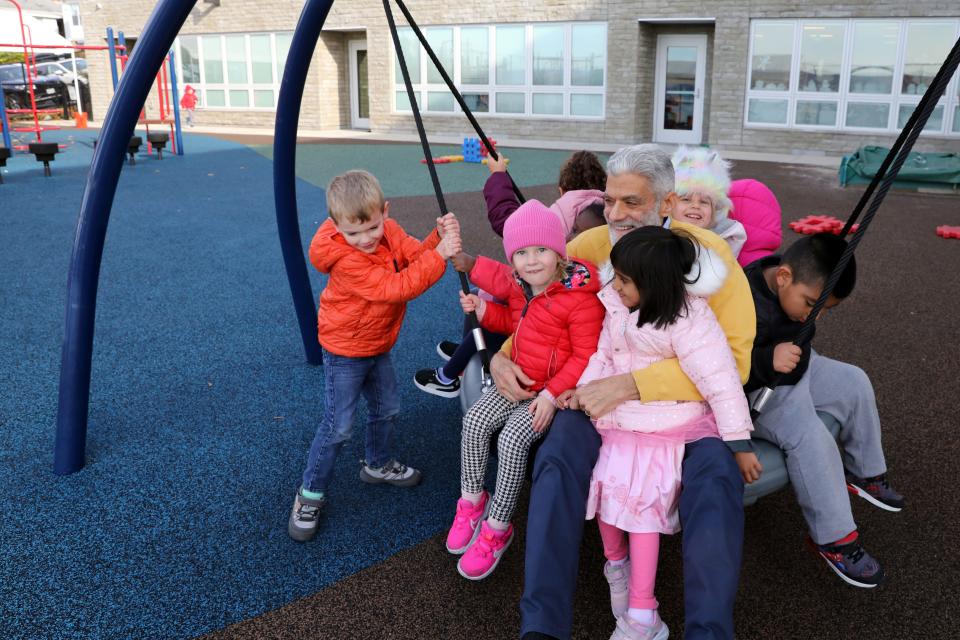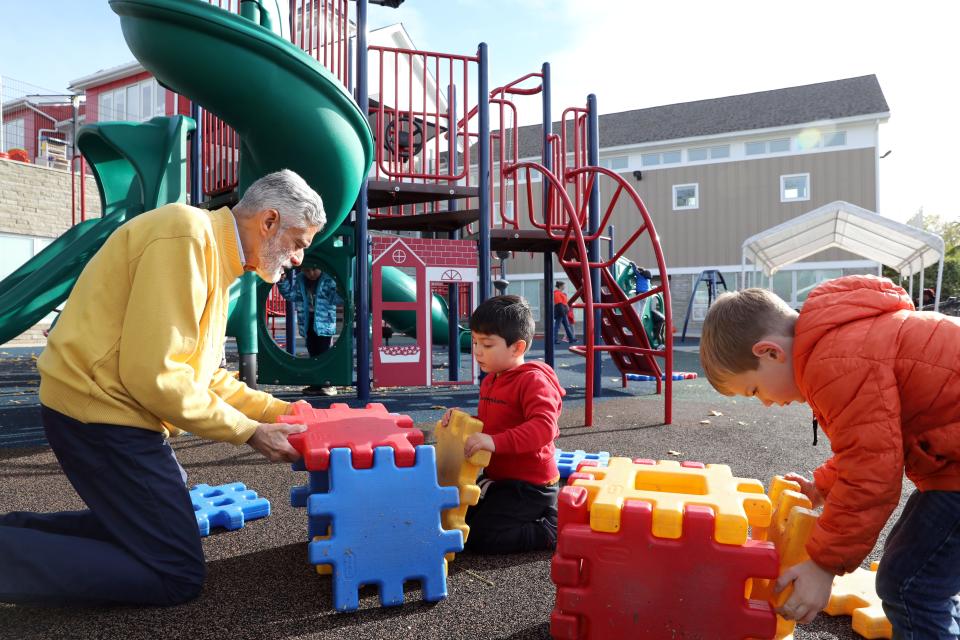Westchester, Rockland child care crisis: loss of federal funds will worsen staffing woes
Child care professionals and families are waiting for the other shoe to drop after federal funds that supported the industry during the pandemic ended Sept. 30.
In Westchester and Rockland counties, child care experts say they'll see the impact of the drop-off in the coming months. They anticipate the loss of funds to child care centers will exacerbate an ongoing staffing crisis the industry faces, as workers seek higher paying jobs elsewhere.
"Programs are going to close because they can't get staff," said Jane Brown, outgoing executive director of Child Care Resources of Rockland. "They're going to have to raise tuition and then parents are going to pull out and find something either illegal or try to figure out something in home, which then in turn might cause programs to close because they're not going to have the enrollment that they need."

One estimate from the think tank Century Foundation said that over 250,000 kids in New York would lose child care and over 5,700 child care programs would close. But it's unclear how bad things will get for child care providers and families locally.
According to the U.S. Department of Health and Human Services, $24 billion in pandemic relief money went toward stabilizing the child care industry.
Brown and other child care professionals said a major challenge is hiring child care workers, many of whom left the profession during the pandemic while child care centers were closed and found higher paying jobs.
Finding and keeping workers is a major challenge
A staffing crisis is now a major challenge for the child care industry.
Kathy Halas, executive director of the Child Care Council of Westchester, said child care centers can only afford to pay low wages, which limits their ability to hire and retain workers, which in turn will limit the number of children that many centers can accept.

Halas called extra federal funding during the pandemic a "lifesaver" for many of Westchester's over 700 child care programs, but said it didn't fix the long-term underfunding in the industry.
Rockland has about 250 child care programs, including home-based programs, Brown said. About half of them closed for some time during the pandemic, and, "Many of them reopened with much lower enrollment and classrooms," she said.
While public education is supported by public funding, "the message to parents has been 'you have to figure it out'," when it comes to child care, Halas said.
Rising minimum wage also a problem
Another added strain is New York's rising minimum wage.
Howard Milbert, executive director of Ossining Children's Center, said he supports raising the minimum wage, but without additional funding to stabilize the system, child care providers have little choice but to raise the rates they charge families. Because the Ossining Children's Center is a nonprofit, it also means Milbert will have to boost fundraising efforts.

Because of the increase in minimum wage, which will be $16 an hour in New York City, Nassau, Suffolk and Westchester in 2024, he will have to raise over an additional $100,000.
"We are having a terrible time hiring employees because fast food restaurants, for example, pay more than what we can afford to pay," Milbert said.
Even employees with a degree and experience are lucky to make $20 an hour, Halas said. She believes the lack of investment in the child care workforce is related to the belief that child care is just babysitting, when in reality the early years of a child's life are important for development and require a high-quality learning environment.
"If the people who are providing the care, they can't care for themselves and their families, then what is the message that we send? How important is this?" said Keishea Allen, Child Care Resources of Rockland's new executive director. Some employees work multiple jobs and go without healthcare, Allen added.
"My fear is if there's not a federal solution in a big investment of additional funds for child care and after school pre-K, that the system is going to continue to fall apart," Halas said. "Because the problem right now is that because of the low wages and the modest benefits, many programs are having trouble finding staff."
Making more families eligible for assistance
While the immediate future of the child care industry seems dire, New York has taken steps that may lessen the impact of the funding drop-off.
According to the state Office of Children and Families, Gov. Kathy Hochul is dedicating $7.6 billion over the next four years to child care. Less than $500 million will be federal pandemic relief money.
New York in October raised the income eligibility cap for the Child Care Assistance Program from 200% of the federal poverty level to 300%, meaning more families are eligible for child care assistance. OCFS estimated the change would extend eligibility to 394,000 children in the state. As of last month, the program expanded further to cover families earning 85% of the state median income.
Another measure New York took in its 2024 budget lowers copays for families.
"OCFS continually advocates for additional state and federal child care funding and works with providers and parents alongside the Governor to address and meet the growing need for high-quality, safe and reliable child care for New York’s hardworking families," OCFS said in a statement.
With more families realizing they are eligible for assistance, Halas said she could see demand for child care increasing. But families already don't have enough child care options, so these additional families may not be able to find spots for their children.
Brown also noted counties might not necessarily have enough funding to accommodate all the additional families that qualify, as is the case in Rockland, where the county's Commissioner of Social Services, Joan Silvestri, said last month it was unlikely the county would be able to accommodate new families in the program in about a month.
Westchester County started a Westchester Works Child Care Scholarship for families who need assistance but whose incomes are greater than allowed under the child care assistance cap. The Child Care Council of Westchester administers the program, which is in its second year of making scholarships available to working families with incomes 400% above the federal poverty level.
Contact Diana Dombrowski at ddombrowski@gannett.com. Follow her on Twitter at @domdomdiana.
This article originally appeared on Rockland/Westchester Journal News: Westchester, Rockland NY child care staffing crisis as fed funds end

